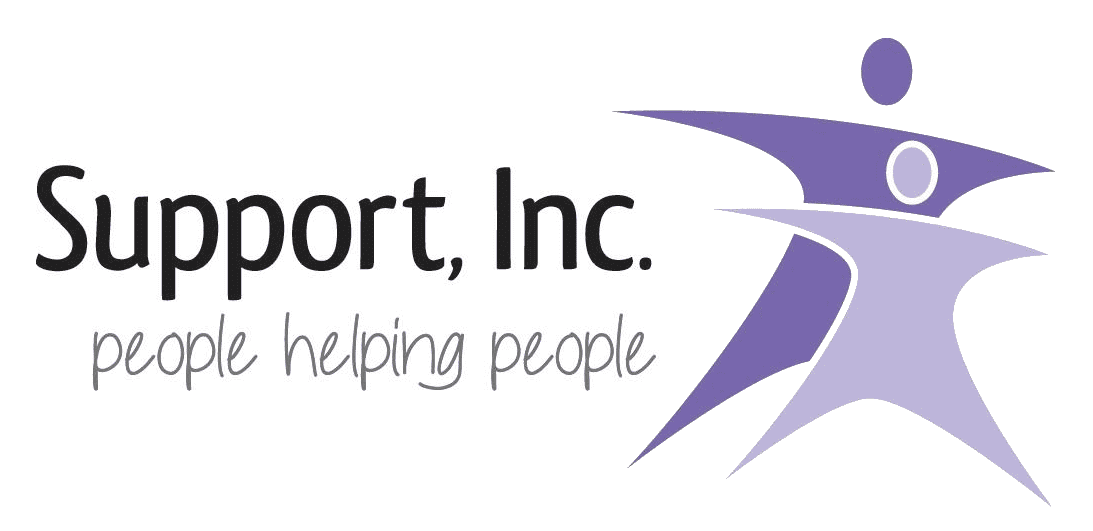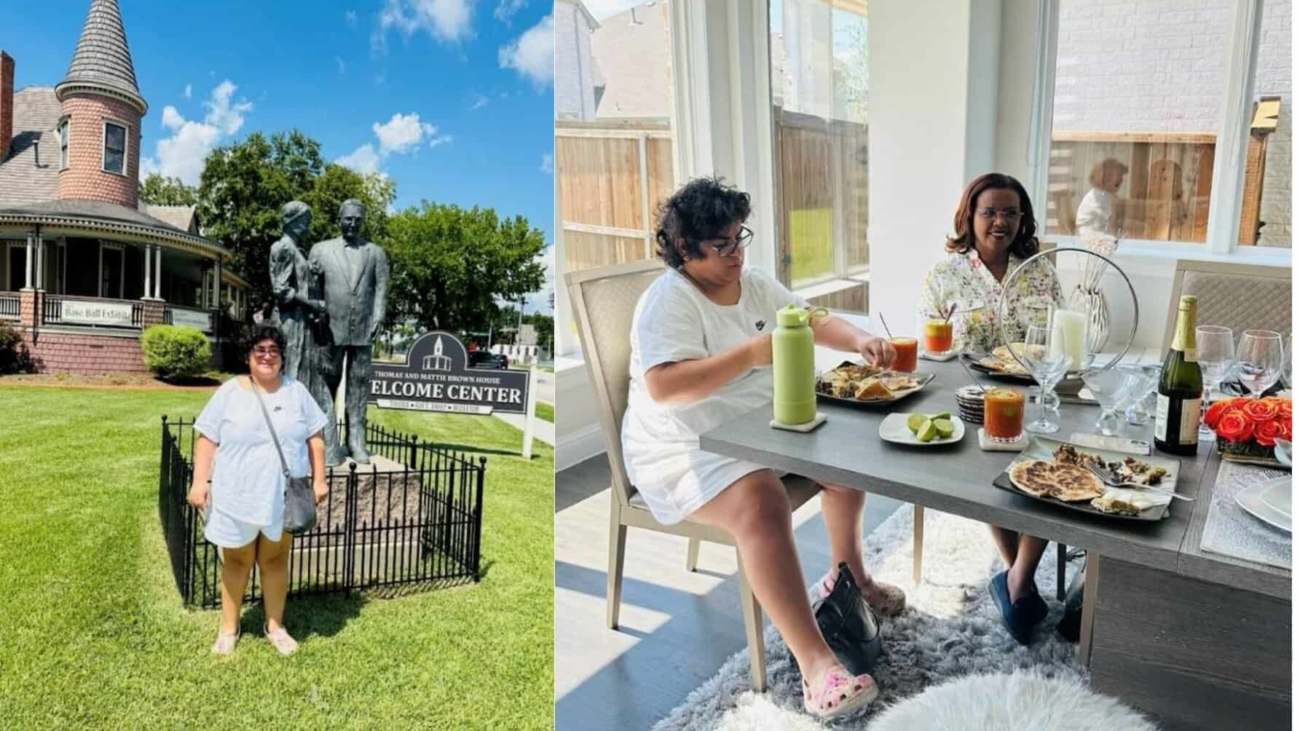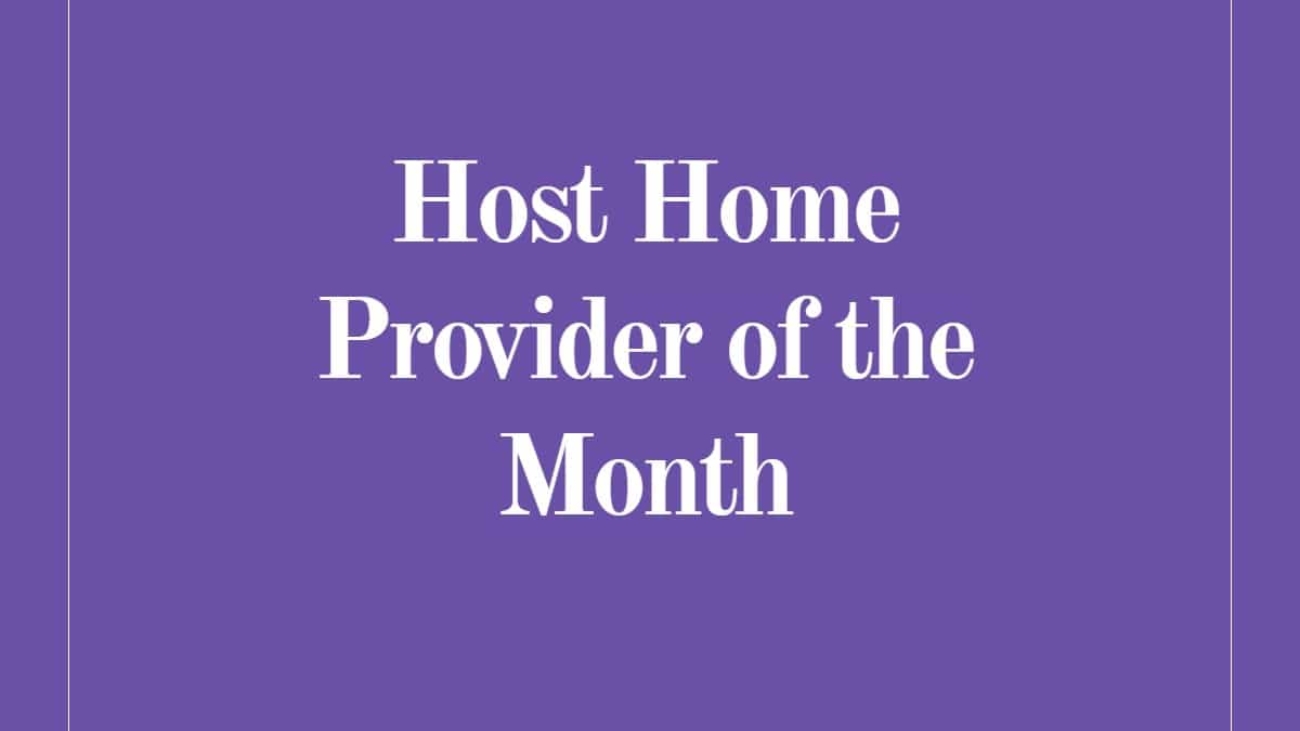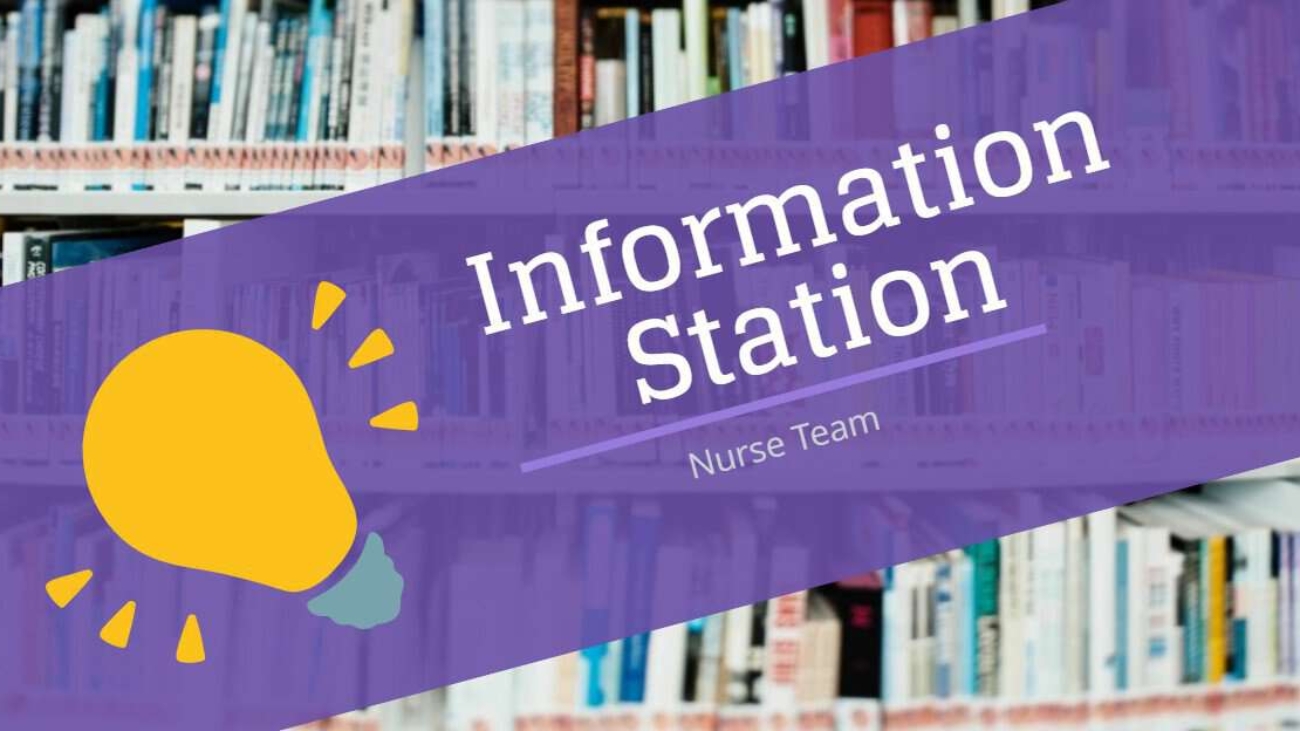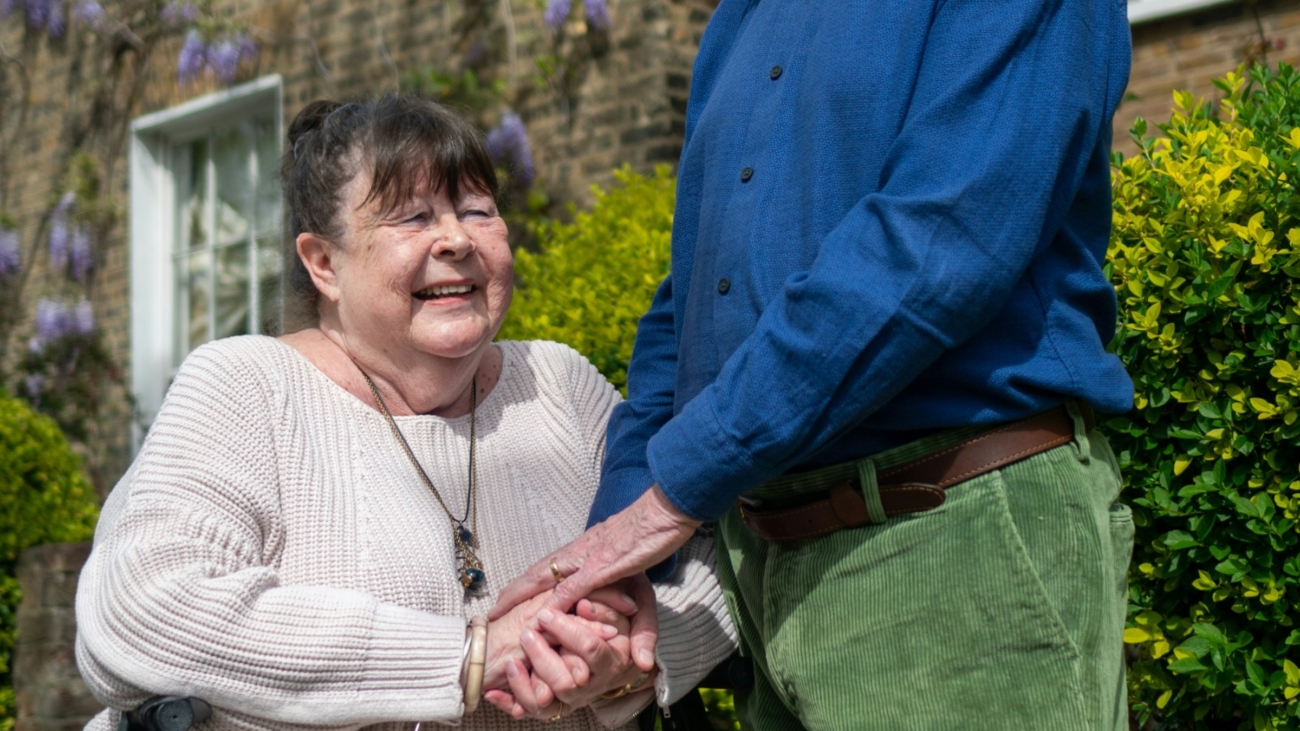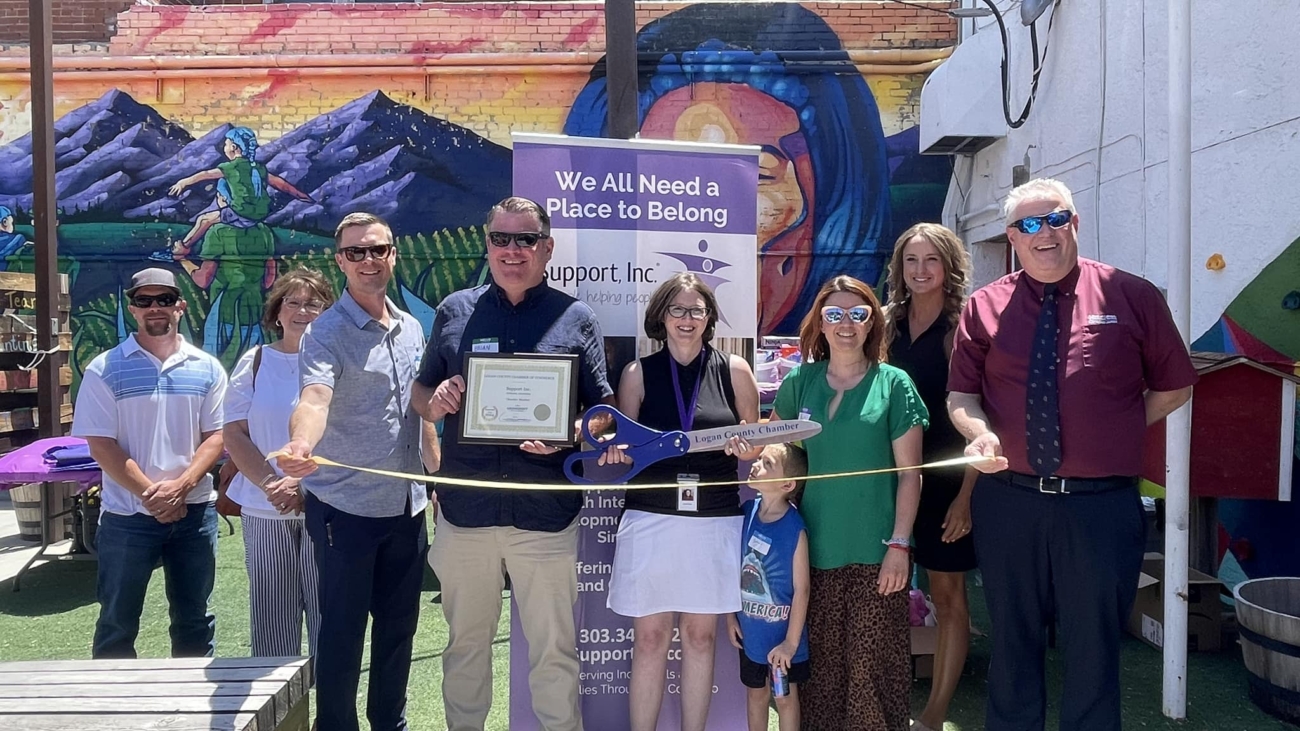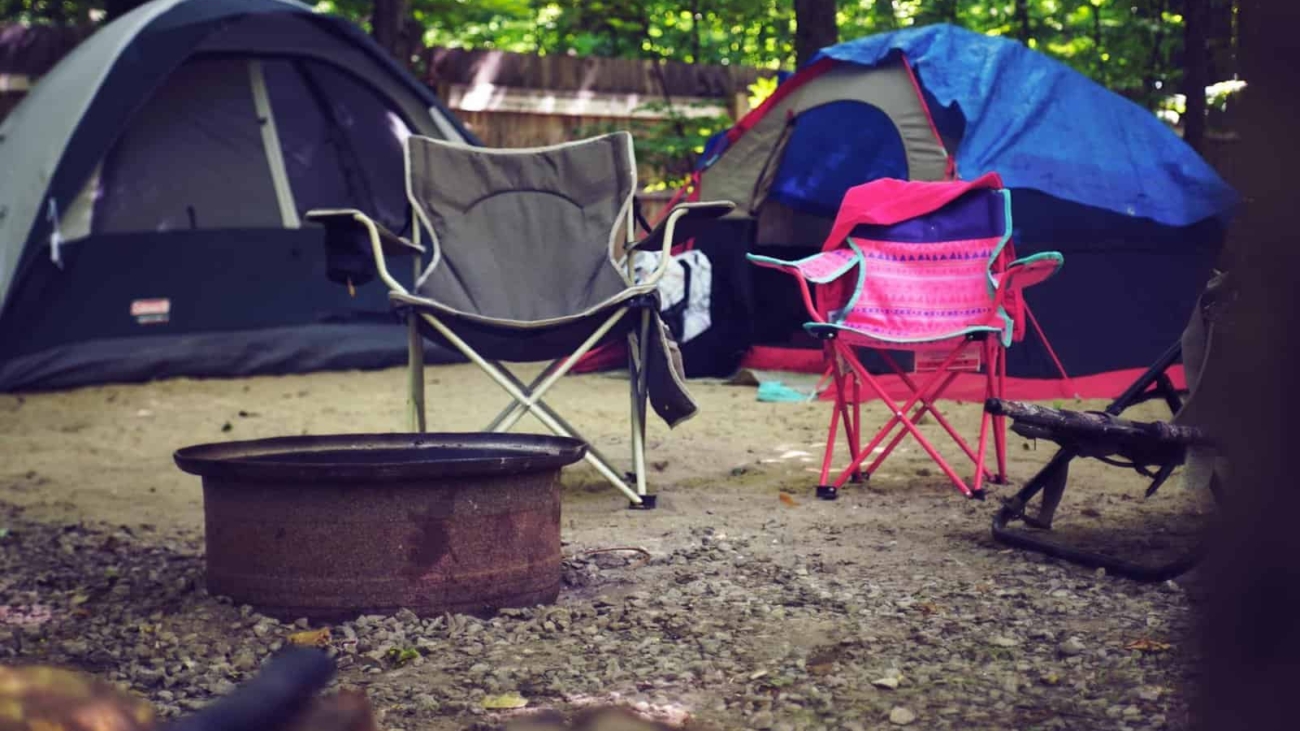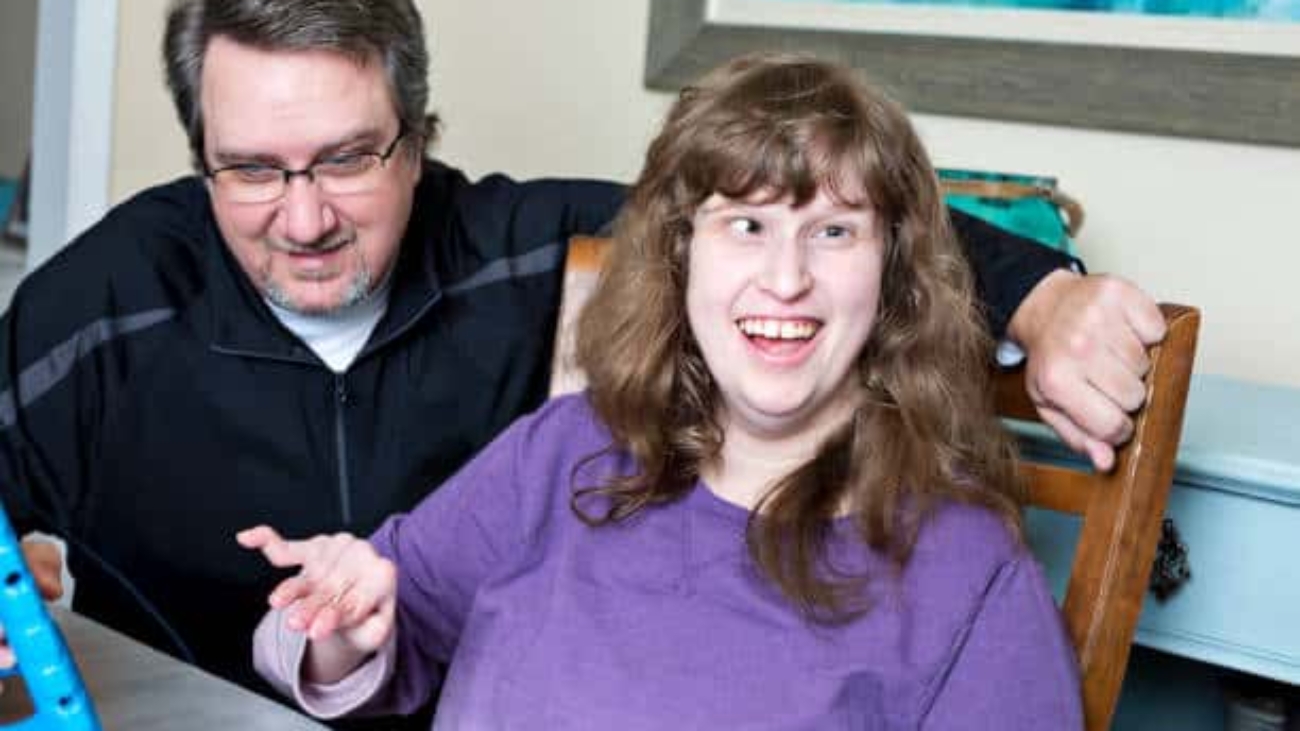- (303) 340-0322
- info@supportinc.com
- Mon - Thurs: 8:00am - 6:00pm
- News & Updates
Sometimes we like to share positive stories, highlighting the relationships between the providers and the people they serve.
In early September, one of our individuals receiving services, Missy, told her HHP Genet that she would like to go on a trip to celebrate her birthday. They talked about where they should go, and Missy said she wanted to go visit some friends from church who had recently moved to Dallas and visit Genet’s daughter who also lives there.
Genet made all the arrangements, and they had a wonderful time visiting friends and family. They also made day trips to historical sights and local attractions.
Happy Birthday to Missy! One of her most valuable gifts is her amazing HHP Genet who does everything she can to make Missy’s wishes come true!!
Host Home Provider of the Month

Please join us in congratulating Annita for Host Home Provider of this month!! This submission was written by Abeer on behalf of the Denver Metro 1 Team:
I nominate Annita for HHP of the month because of her person centered approaches and her dedication to providing the highest quality of services to the persons receiving services.
Annita supports the whole person and has an innate ability to personalize services and supports to meet the person where they are. Her calm and composed demeanor is contagious and does carry on to the PRS.
One of the PRS in my caseload moved to Annita’s home in Feb of 2024. For the purpose of this communication, we will call this PRS AB5. Prior to moving to Annita’s home, AB5 demonstrated little to no interest in communicating with people and seemed unaware of my presence in almost every home visit I made. I had to take the initiative and the effort to communicate with AB5. After moving in with Annita, AB5 started to come to me when I go there. AB5 looks at me when I attempt to communicate and sometimes, AB5 will come to me before I even try to reach out.
AB5 has gained many new skills since moving to Annita’s! AB5, for example, started to participate in putting clothes in the laundry basket. AB5 started to engage in simple table top activities and has shown interest in the other PRS living in the home.
AB5 doesn’t demonstrate the interest in choosing clothes or the ability to participate in choosing what to wear. Annita, however, does care and will invest every effort in ensuring that AB5 has opportunities to choose the best of clothes.
Thanks again Annita for everything you do to support AB5!!
Nurse Team Updates
Hello and Happy September to everyone! We recently restructured the Nurse Team following Morgan’s departure. As Brian Farestad (VP of Operations) mentioned earlier this summer-
I wanted to take a moment to acknowledge that Morgan Struck will be stepping down from her role as Associate Director of Nursing, so she can focus on completing her degree. Over the past five years, Morgan has been instrumental in the development of the Nursing team, as well as the overall growth and success of Support, Inc. as a whole. Truly a “People Helping People” person, Morgan always demonstrated a true passion for serving our individuals. Her undeniable knowledge and skill as a nurse, her ability to think strategically and turn vision into reality, her strong work ethic and willingness to go above and beyond, and unique blend of humor, kindness, and ferocity, will be missed.
Morgan’s last full-time day at Support was July 1st. Danyelle Grajeda took over as the manager of the Nurse Team and we are happy to share some additional updates with the organization.
Erin Gordon, a strong addition to the team for the last 11 months, was recently promoted to Lead Nurse Case Manager. We congratulate Erin on her recent promotion and wish her nothing but the best in this new position!
We also have the following members of the team below- we are so grateful to each of them as they continue to support and rally behind the folks we serve with a variety of medial needs.
Lauren Reed – Nurse Case Manager
Moriah Welles – Medical Coordinator
Nicole Jordan – Medical Coordinator
And last but not least, we have a link with more details on the flu. It’s important for everyone to protect themselves as the cold and flu season is upon us, especially if you already have medical needs and concerns. Please click the link below to learn more.
Carlos Takes a Trip to Mexico
Carlos Navarro and his FCG/Sister Norma Navarro recently went on a trip with family to visit their relatives in Mexico. Norma said there are always some worries and grey areas when it come to traveling with Carlos but she is glad they gave it a try and that he managed that well. She mentioned it has been quiet some time since they last saw their family and this trip was long overdue. On this trip Carlos enjoyed mostly all the water activities, hanging out with his family members, and meeting new friends. One of their favorite memories that was shared with us was a video of him baking a cake! They are so happy that this trip was a success for their family and hoping to make another trip possibly next year!
Quality Assurance Webinar
Learn more about our amazing Quality Assurance Department here at Support, Inc.! We discuss why having this department is reassuring for the people we serve, their families and providers. Not all agencies have a QA department and we know that good quality is good care. We strive to work with families within the rules and regulations to provide a person-centered approach to each unique situation we encounter. Today, we discuss the goals of the department and how our employees keep the people we serve safe out in the community.
Frequently Asked Questions Regarding the DD Waiver in Colorado
Often times we encounter families that are new to the DD waiver in Colorado and services in general. We are always happy to answer any questions you may have, even if it pertains to other waivers we do not serve. Although we may not know the answers to everything, the Intake Team is well-equipped to answer your questions. With a combined 60 years experience in the field, we’re well-connected to community partners along the Front Range and the Eastern Plains.
Reach out to Intake@supportinc.com for specific questions concerning unique situaitons. For broader and more general questions, please refer to the guide below.
1. What is the DD waiver?
The DD Waiver stands for Developmental (and Intellectual) Disabilities and has been a tremendous resource for the people we serve and their families. Some of the benefits you can receive on the waiver include a budget to be spent one of three ways: Family Caregiver, Host Home or PCA (Personal Care Alternative aka an individual living on their own in the community). There’s additional funding as well to cover things such as behavioral/clinical services, job coaching, supported community connections and more.
We are happy to chat with you if you have any questions about services. Please contact Intake@supportinc.com for more details. Our Intake Team has a combined 57 years’ experience in the field. We offer free no-pressure consultations over the phone and online and we’re used to dealing with unique situations.
2. Brief history on the waiver
The waiver was introduced in the state of Colorado in 1983 as part of a national effort to move people with Intellectual and Developmental Disabilites from institutions to community-based settings. Over the last 40 years, the field has grown larger. The Family Caregiver program was specifically introduced back in 2008 and fully implemented in 2010. We still have a ways to go as agencies across the state continue to make improvements by meeting the requirements of the new Case Management Redesign.
Support, Inc. is well equipped to handle these changes thanks to our Quality Assurance Department. We seamlessly adapt to change as the landscape for Intellectual and Developmental disability services continues to improve.
3. Case Management Redesign
Conflict Free Case Management (CFCM) is a federal mandate from Centers for Medicaid and Medicare Services (CMS) under the Federal Final Settings Rule. The rule requires there be a separation between case management agencies (formerly known as Community Center Boards, now referred to as Case Management Agencies) and direct services. This means, a company cannot provide both case management services and program services (provided by PASAs- Program Approved Service Agencies) , such as residential, day services or behavioral services to the same person. Many of Colorado’s CCBs had been providing both case management and program services and are now required to eliminate this conflict of interest.
The efforts of The Department of Health Care Policy and Finance (HCPF) to comply with federal requirements of (CFCM) have evolved into initiatives called Case Management Redesign.
The implementation of this process is nearly complete for most CCBs, now known as Case Management Agencies. We closely monitor changes and strive to maintain excellent communication with case managers and their agencies.
If you are struggling to reach your case manager in a timely manner, please don’t hesitate to reach out to us at intake@supportinc.com We have a wealth of information and can research your questions for you, if you need additional assistance.
4. How to apply for the DD waiver
To apply for the DD waiver, you need to contact your county’s Case Management Agency. This website includes a list of counties. Once you find your county, reach out to them to get started. https://hcpf.colorado.gov/case-management-agency-directory
5. What happens if myself or my loved one doesn’t fit in the DD category?
Rest assured; Colorado offers access to other waivers for different needs. You can find more information at this link: https://hcpf.colorado.gov/hcbs-waivers
Again, please don’t hesitate to contact us about the DD waiver. We’ve helped many families navigate the Case Management Redesign. We are here to help!
Sources:
https://coloradosun.com/2020/02/05/colorado-medicaid-waiver-disabilities/
https://drive.google.com/file/d/1iUCbO3WD-8PJbU3ckihrsGZYX3FOSsyh/view?pli=1
https://coloradosun.com/2020/02/05/colorado-medicaid-waiver-disabilities/
Caregiver Burnout Resources
At Support, Inc., we understand how challenging it can be to find resources when dealing with burnout. We offer a variety of community-based services and care options for families and caregivers who have adult children with intellectual and developmental disabilities. These options are also ideal for children with disabilities who are 18 and have previously been receiving services through the Children’s Extensive Support (CES) waiver. Just as no two people are the same, neither are their specific needs for in home care. Whether that’s as a full time resident in a host home, in a family home, or their own home or apartment, Support, Inc.’s spectrum of options and opportunities is designed to offer stability, progress and, of course, safety. Because each situation is unique, and we approach it in this way. Our staff will adapt their approach to each individual and family’s specific needs as our guide, while building a strong partnership for many years to come.
Taking into careful consideration each person’s individual needs, we work with each family and individual we serve to provide the best residential environment for everyone involved. Our residential services include the following three programs. The adults with disabilities programs we provide remain unmatched in the service industry. Colorado disability services are important to us, and we do everything we can to meet each family’s unique and specialized needs.
Host Home:
Our host home providers are committed to providing a nurturing, supportive and safe home atmosphere that allows for growth and discovery. Residents will have an opportunity to thrive in a secure, caring environment and be more engaged in the world around them.
Providers are pre-screened through background and reference checks, as well as home safety inspections. They also receive extensive, ongoing training in the intellectual and developmental disabilities field and have access to additional support and oversight from a residential program coordinator, nurse, clinician and public benefits specialist.
Reach out to us directly to learn more about caretaker pay.
Family Caregiver Program:
Through the Family Caregiver Act, family caregivers may be eligible for both financial and non-financial support. We are often asked “Can a family member get paid to be a caregiver” and the answer is YES. Colorado Family Caregivers have the option to choose between the employee and independent contractor route. The Support, Inc. team gives families maximum flexibility to create an individualized plan tailored to their needs. Families can:
- Pay a family caregiver to provide care for a loved one
- Hire a non-family caregiver to provide care
- Cover or reimburse costs related to life events and needs outside of traditional staffing
We also provide:
- Screening for non-family caregivers
- Residential support and respite care options matched to the family’s level of need
- Training for family and non-family care givers
- Competitive pay rate, flexible budgets and access to our employee benefits plan and 24-hour support line
- Support group for family caregivers
Please reach out to learn more about our care taker pay. We’re also happy to relay caretaker documentation samples.
Independent Apartment Living Program:
We help individuals find apartments that meets their unique needs. We also assist with general care and skills development, such as grocery shopping, medical appointments, transportation and provide a 24-hour support line. The assisted living for disabled young adults is something we pride ourselves on providing- it is truly a pleasure to work with individuals living independently in the community.
For more information on our residential services and the DD waiver in Colorado, please contact Brian Slusarz at info@supportinc.com or click here to complete our contact form. The disability caregiver in Colorado is not a position that we take lightly; great disability service providers in Colorado can be hard to come by. But our disability program for adults is absolutely excellent and we hope to hear from you soon! We’re very familiar with home and community based services. It would be an honor to provide disability services to you and your family.
For Caregiver Resources related to burnout, please follow the links below-
Support, Inc. Featured in Sterling Article
We were so grateful to have Jeff Rice with the Journal Advocate join us for the Sterling Open House and BBQ last week!
Feel free to check out the story below- and thanks again to Jeff for the appearance and the write-up!!
Support, Inc., expands services for those with disabilities into Sterling
BACPAC Trip Next Week!
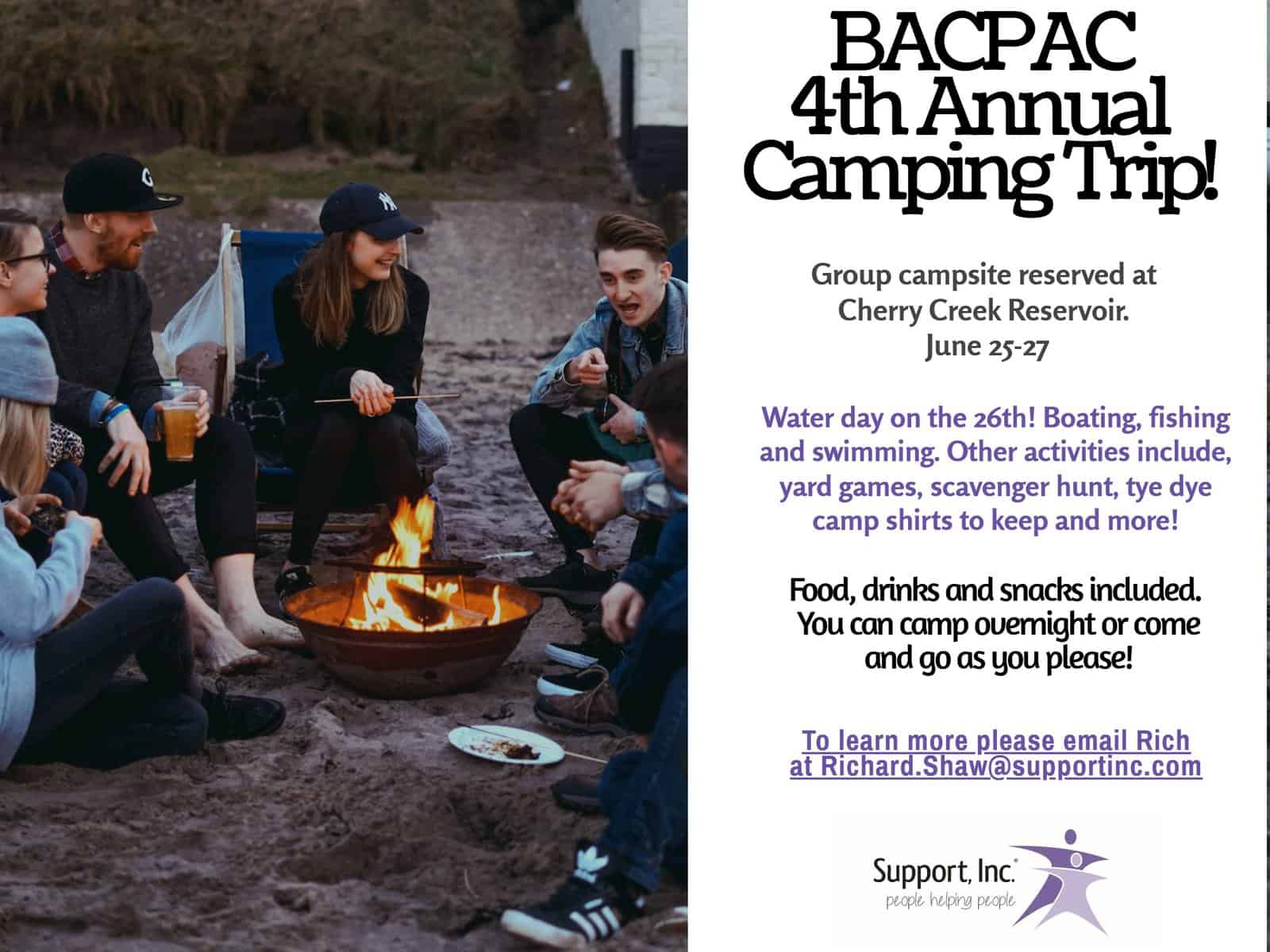
Don’t forget- we have our Annual BACPAC Camping Trip coming up next week! We have a group site reserved June 25th-27th.
We’re still searching for additional volunteers to help! Even if you can’t attend, donating supplies would be greatly appreciated please. IE veggie trays, fruit trays, desserts, etc. Rich will keep a food list to help prevent duplicate items. Please reach out to Rich at Richard.Shaw@supportinc.com before you purchase anything, so he can chat with you about what’s needed 😊
We have a Campers List below!!
Thanks again to everyone that’s making this trip possible for those we serve. We couldn’t do it without you and looking forward to having so much fun soon!!
Campers List
Recommended: If you don’t have any of the items listed, please let us know 😊 We will have some extra supplies on hand.
Meals, Drinks (water, Gatorade), and Snacks provided
A Day
- Mediation (if needed)
- Sun Screen
- Bug Spray
- Light Loose clothing (Hat-if wanted)
- Sunglasses
- Extra Clothing (sandals) if going swimming: towel
- Light Jacket/Hoodie
- Individual refillable Water bottle (labeled with name)
- Lawn/camp chair
- Fishing gear (if needed)
- Personal supplies (if needed)
B Overnight: same as above +
- Tent
- Sleeping bag/Air mattress (if needed)
- Extra Blanket
- Flashlight/Lantern
- Extra clothing
- in case we get cooler weather at night
- Shoes
- Personal supplies (hygiene)
We warmly invite our individuals in services, their caregivers and providers. Please join us if you can!!
Food, drinks and snacks provided!!
The camping area will include
- Large, covered area with tables and lighting at night
- Rest room on site
- Campground has showers available at main office
- Running water on site
- Electrical outlets on site
Activities will include:
- Outdoor yard games
- Board Games
- Table games
- Fishing
- Music
- Scavenger hunt
- Tye Dye your own shirt
- Camp Fire at night (weather dependent)
- + much more!!!
Wednesday 26th is the boat day (this will also be the swim day)
- Two pontoon boats have been reserved for the day
- Groups will meet on at the marina to go out on the water for an hour ride
Benefits Services Webinar
Please join our Benefits Services Webinar on June 5th at 11am! This will be held on zoom (please see link below). To RSVP, please visit supportinc.com/calendar
